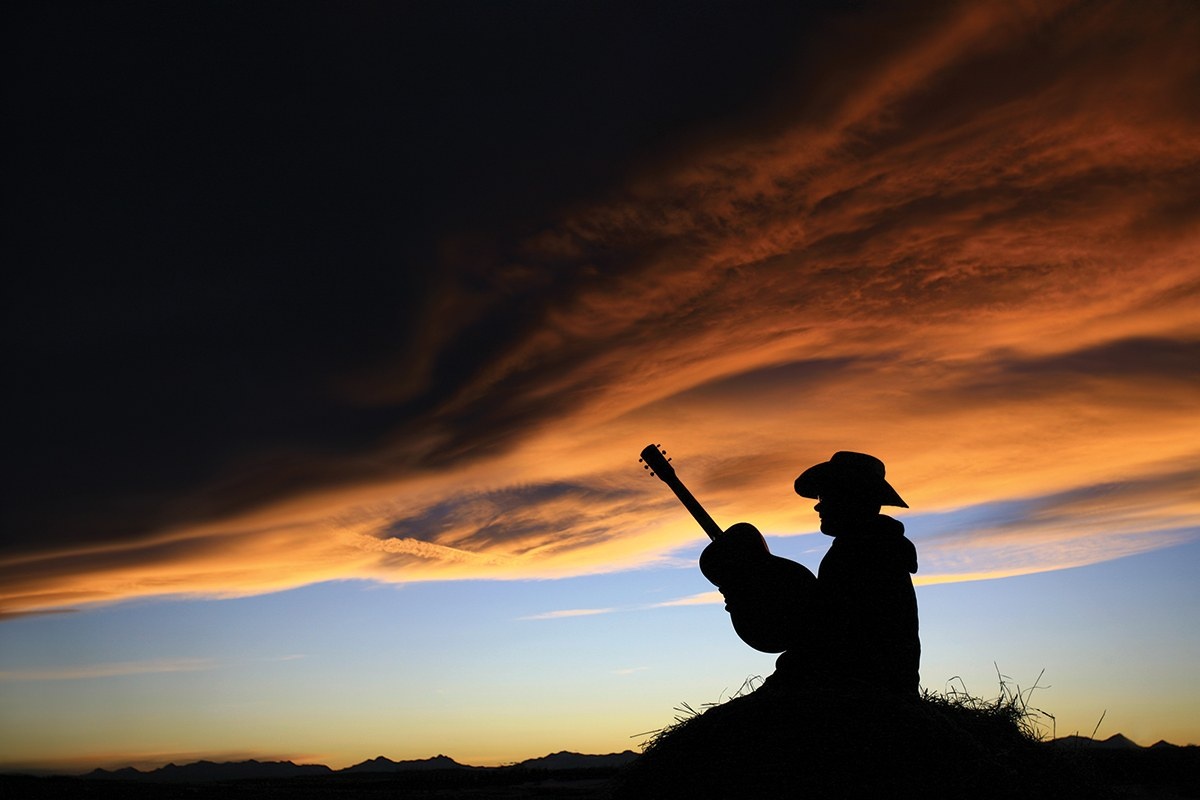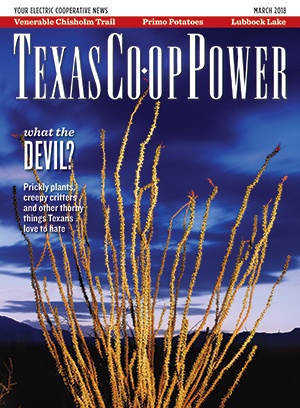Just hearing the word “Chisholm” evokes a musical sense of the cattle drive era. The name sparks an audio association of jangling spurs, creaking saddle leather and restless lowing of the herd. In addition to those organic sounds, the storied trail has been sung about around more campfires and in more saloons than just about any other subject in the American West.
John Avery Lomax, a pioneering scholar of American folk and cowboy songs, grew up near Meridian on a branch of the cattle trail that regional tradition called the Chisholm. Some of Lomax’s earliest memories were of cowboys singing and yodeling to calm their cattle bedded down for the night. Charles Siringo testified that the vocal treatment worked in his classic book, A Texas Cowboy; or, Fifteen Years on the Hurricane Deck of a Spanish Pony, first published in 1885.
Siringo wrote about an episode when a herd on the Chisholm Trail stampeded after a late-night storm: “I finally about three o’clock got them stopped and after singing a few ‘lullaby’ songs they all lay down and went to snoring.” Interestingly, Siringo observed in his 1927 book, Riata and Spurs, that a popular ballad about the outlaw Sam Bass was the most effective tune for quieting a herd of longhorns during a thunderstorm.
The longtime Dallas journalist and historian Wayne Gard reported in his 1954 book, The Chisholm Trail, that Methodist hymns often were deployed to arrest a stampede. He also quoted a Kansas City scribe, who noted in 1873 that “Negro minstrel songs have been found equally effective in soothing the breast of the wild Texas steer.”
Gard’s research indicated that cowboys intoned all kinds of tunes on the trail, from sentimental ballads like Green Grow the Lilacs and When You and I Were Young, Maggie to gold rush favorites like The Days of Forty-Nine and, of course, Old West standards such as The Texas Rangers, The Buffalo Skinners, The Streets of Laredo and Bury Me Not on the Lone Prairie.
Lomax held the opinion that The Old Chisholm Trail was the song “most universally sung by the cowboys.” New Mexico-based song archivist Nathan Howard “Jack” Thorp, who made a song-collecting trek through Texas in the 1890s and published his first book, Songs of the Cowboys, in 1908 (two years before Lomax’s first book of songs), observed that The Old Chisholm Trail was sung by cowboys “from the Canadian line to Mexico. There were thousands of verses to it, the more whiskey the more verses.”
Lomax reminisced in his 1947 book, Adventures of a Ballad Hunter, about the time in the early 1900s when he “cornered” a group of cowboys in the back room of Fort Worth’s White Elephant Saloon. (Note: This was the earlier iteration of Cowtown’s White Elephant, when it was near the notorious Hell’s Half Acre district. The current White Elephant is in the city’s Stockyards National Historic District.) None of the cowboys would sing into the horn of Lomax’s Ediphone recorder. But one proclaimed, “I told the professor that The Old Chisholm Trail song was as long as the trail from Texas to Montana. I can sing eighty-nine verses myself. Some of the verses would burn up his old horn, and anyhow, I’m not goin’ to poke my face up to his blamed old horn and sing. The tune ain’t much nohow.”
Gard wrote that, “For day riding, the song most popular of all was the one about the Chisholm Trail itself,” describing it as “no crooning song but a vigorous ballad for a man trotting on a horse.” Gard opined that the melody was likely adapted from Stephen Foster’s song Old Uncle Ned.
Come along, boys, and listen to my tale;
I’ll tell you of my troubles on the old Chisholm Trail.
Come a ti yi yippy, yippy yay, yippy yay,
Come a ti yi yippy, yippy yay.
John I. White, known as the popular Lonesome Cowboy on New York radio in the 1920s and ’30s, commented in his 1975 book, Git Along, Little Dogies: Songs and Songmakers of the American West, that some of the interminable verses of The Old Chisholm Trail, “one of the oldest American cowboy songs,” provided cowboys a ready outlet for expressing their frustrations along the trail. White cites the following verses he commonly sang.
It’s bacon and beans most every day;
I’d as soon be eating prairie hay.
No chaps, no slicker, and it’s pourin’ down rain,
I swear, by God, I’ll never night-herd again.
I’ll sell my outfit as fast as I can,
And I won’t punch cows for no damn man.
Andy Hedges of Lubbock, who describes himself as a “cowboy songster,” has recorded a version that includes the last two lines of White’s excerpt. One of the younger and most discerning artists preserving and interpreting the traditional songs of the American West, Hedges also replaces the song’s predominant chorus of “Come a ti yi yippy, yippy yay, yippy yay” with something like “Hoop doam diddle-um-day emmalay, hoop doam diddle-um day.”
“Every good cowboy singer has a version of The Old Chisholm Trail,” Hedges notes. “I think they used to teach this song in grade school, so a lot of people know it. The version I play is loosely based on a field recording that John and Alan Lomax made of Moses ‘Clear Rock’ Platt at Central State Farm in Sugarland, Texas, in 1933. It’s a great example of the deep influence that African-Americans had on cowboy music.”
Gene Fowler is an Austin writer who specializes in history.


